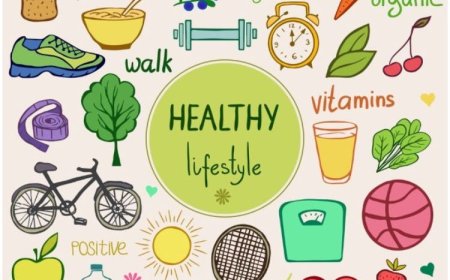The Role Of Nutrition In Brain Injury Recovery: A Comprehensive Guide
In recent years, the link between nutrition and the brain has become the focal point of numerous scientific studies. Not only does what we eat influence cognitive functions like memory and attention, but it also plays a crucial role in recovery from injuries, particularly brain injuries. In cases of traumatic brain injury (TBI), one of The post The Role Of Nutrition In Brain Injury Recovery: A Comprehensive Guide appeared first on GymGuider.com.

In recent years, the link between nutrition and the brain has become the focal point of numerous scientific studies. Not only does what we eat influence cognitive functions like memory and attention, but it also plays a crucial role in recovery from injuries, particularly brain injuries. In cases of traumatic brain injury (TBI), one of the most devastating kinds of injury, nutrition can make a significant difference in the recovery trajectory.
The brain is a complex organ, requiring specific nutrients to function optimally. For those recovering from a brain injury, getting the right nutrition can potentially reduce complications, promote faster recovery, and even enhance cognitive function. This guide will walk you through the critical role of nutrition in brain injury recovery.
1. The Link Between Nutrients And Brain Repair
In the aftermath of a traumatic brain injury, the brain’s primary concern is to heal and repair. Just like any other injury, it requires the right tools – in this case, nutrients – to facilitate the healing process. Adequate nutrition can reduce inflammation, prevent oxidative stress, and promote neurogenesis (the formation of new neurons).
Moreover, many victims of TBI subsequently file a brain injury long term disability claim, emphasizing the prolonged effects of such injuries. During the lengthy recovery period, maintaining optimal nutrition is a key factor to ensure the best outcome. By supplying the brain with the necessary nutrients, you can aid the recovery process and potentially improve the chances of a more complete recovery.
2. Omega-3 Fatty Acids: The Brain’s Building Blocks
The brain is rich in fats, particularly omega-3 fatty acids like DHA. These fats are essential for maintaining the structural integrity of brain cells. Following a brain injury, supplying the brain with ample omega-3s can support membrane repair and reduce inflammation. Foods rich in omega-3s include fish like salmon, walnuts, chia seeds, and flaxseeds.
3. Antioxidants: Protecting Against Oxidative Stress
Brain injuries can lead to oxidative stress, where there’s an imbalance between free radicals and the body’s ability to counteract their harmful effects. Antioxidants play a crucial role in neutralizing these free radicals, thus protecting the brain. Berries, nuts, dark chocolate, spinach, and artichokes are just a few examples of antioxidant-rich foods that can bolster brain health.
4. B Vitamins: Supporting Cellular Functions
B vitamins, particularly B6, B9, and B12, are essential for brain health. They support cellular functions, including the synthesis of neurotransmitters and the repair of DNA. In the context of brain injury, these vitamins can aid recovery by ensuring cells function optimally. Leafy greens, whole grains, poultry, and eggs are excellent sources of B vitamins.
5. Probiotics: The Gut-Brain Connection
Recent research highlights the intimate connection between the gut and the brain. A healthy gut can have a profound impact on brain health, and vice versa. Probiotics, or beneficial bacteria, can help maintain a balanced gut environment. Consuming fermented foods like yogurt, kefir, sauerkraut, and kimchi can promote gut health, which in turn, can support brain recovery.
6. Amino Acids: The Precursors To Neurotransmitters
Amino acids are the building blocks of proteins, and some also serve as precursors to neurotransmitters. For instance, tryptophan is a precursor to serotonin, a neurotransmitter that regulates mood, appetite, and sleep. By ensuring an adequate intake of amino acids, you support the synthesis of vital neurotransmitters. Poultry, seafood, beans, and lentils are rich in essential amino acids.
7. Hydration: Essential For Brain Function
The brain is about 75% water, making hydration crucial for its function. Dehydration can impair cognitive abilities and slow down recovery. Drinking sufficient water and consuming water-rich foods like cucumbers, oranges, and strawberries can maintain optimal brain hydration.
8. Minerals: The Silent Facilitators
Often overlooked, essential minerals such as magnesium, zinc, and iron play pivotal roles in brain function and recovery. For example, magnesium is involved in nerve transmission and has been shown to have a neuroprotective effect. Zinc is essential for DNA synthesis, protein formation, and cellular metabolism—all processes that are ramped up during recovery. Iron, on the other hand, is crucial for transporting oxygen in the blood, ensuring that the brain receives the oxygen it needs to heal and function.
Deficiencies in these minerals can hinder the brain’s ability to recover and function post-injury. Including mineral-rich foods in your diet can make a significant difference. Foods like pumpkin seeds, almonds, spinach, legumes, and red meat can provide a healthy dose of these essential minerals.
Conclusion
From vitamins and fats to hydration and minerals, understanding the vast network of nutrients that support brain health can be empowering. Especially in the wake of a brain injury, when the demands on the brain are profoundly heightened, ensuring a nutrient-rich diet can significantly impact the trajectory of recovery.
Whether you’re working towards healing or aiming for prevention, embracing the profound role of nutrition in brain health can guide you towards a brighter, healthier future.
The post The Role Of Nutrition In Brain Injury Recovery: A Comprehensive Guide appeared first on GymGuider.com.
What's Your Reaction?



























































































